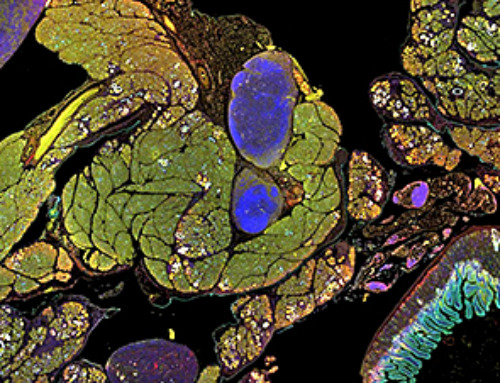Clinical-stage biotech Alzheon has completed a $100 million Series E financing round to advance the development and commercialization of its oral drug for Alzheimer’s disease. The drug, called ALZ-801 (valiltramiprosate), is designed to inhibit the formation of soluble toxic beta amyloid oligomers, which are implicated in the cognitive decline observed in Alzheimer’s patients. The small molecule acts upstream of other late-stage amyloid-targeting treatments, offering a potentially more effective intervention by addressing the early formation of neurotoxic aggregates.
The new funding will be used to complete the current APOLLOE4 Phase 3 study to evaluate the efficacy and safety of ALZ-801 in patients with early Alzheimer’s disease. It will also support Alzheon’s plans to submit a New Drug Application (NDA) in 2024 based on the study’s outcomes, as well as preparing the manufacturing processes and commercial launch of ALZ-801, which is potentially the first oral disease-modifying therapy for Alzheimer’s.
“This latest fundraising ensures that we will have sufficient capital to complete our pivotal Phase 3 program and prepare commercialization of oral ALZ-801/valiltramiprosate with runway well into 2026,” said Ken Mace, CFO of Alzheon. “ALZ-801 has the potential to disrupt the Alzheimer’s treatment paradigm by slowing the progression of this relentless and debilitating disease, and the results from our pivotal APOLLOE4 Phase 3 trial will set the stage for the potential NDA filing this year, followed by the U.S. commercial launch in 2025.”
The pivotal APOLLOE4 Phase 3 study particularly targets patients with two copies of the APOE4/4 gene, a high-risk group that constitutes approximately 15% of Alzheimer’s patients, including actor Chris Hemsworth. The study, which has screened over 6,000 patients and enrolled 325 subjects, will conclude in the third quarter of 2024. Positive results could pave the way for regulatory approval and subsequent commercialization.
“We are at the dawn of a new era in the treatment of Alzheimer’s disease, and our novel therapeutic approach has an opportunity to transform the standard of care and improve access to treatment for all Alzheimer’s patients,” said Dr Martin Tolar, CEO of Alzheon. “Our well-differentiated drug candidate with a favorable safety profile, showing no increased risk of vasogenic brain edema in more than 3,000 AD patients, is positioned to potentially become the first oral disease modifying therapy for the treatment of Alzheimer’s disease.”
In addition to the Phase 3 study, ALZ-801 has been evaluated in a two-year Phase 2 biomarker trial involving 84 patients, including 31 APOE4/4 homozygotes. This trial, completed in late 2023, is currently in a fourth-year extension phase. The study’s primary goal is to assess the effects of ALZ-801 on biomarkers of Alzheimer’s pathology, alongside its clinical efficacy, safety, tolerability, and pharmacokinetic profile over 208 weeks of treatment.
Alzheon envisions extending the use of ALZ-801 beyond APOE4/4 homozygotes to include patients with one copy of the APOE4 gene and even noncarriers. The company says it is also focusing on a future precision medicine approach, leveraging individual genetic and biomarker information to tailor therapies that offer the greatest benefit to specific patient subsets.
The funding round, which was led by Alerce Medical Technology Partners, follows a $50 million Series D round completed in 2022.
“At Alerce, we focus on investing in companies in the late stages of development that are developing lifesaving drugs or devices with the potential to benefit millions of patient lives,” said Muneer Satter, Managing Partner of Alerce. “Alzheon’s ALZ-801 provides an innovative precision-medicine solution in an emerging Alzheimer’s pipeline with a path to potential approval in 2025.”
News
Studies detail high rates of long COVID among healthcare, dental workers
Researchers have estimated approximately 8% of Americas have ever experienced long COVID, or lasting symptoms, following an acute COVID-19 infection. Now two recent international studies suggest that the percentage is much higher among healthcare workers [...]
Melting Arctic Ice May Unleash Ancient Deadly Diseases, Scientists Warn
Melting Arctic ice increases human and animal interactions, raising the risk of infectious disease spread. Researchers urge early intervention and surveillance. Climate change is opening new pathways for the spread of infectious diseases such [...]
Scientists May Have Found a Secret Weapon To Stop Pancreatic Cancer Before It Starts
Researchers at Cold Spring Harbor Laboratory have found that blocking the FGFR2 and EGFR genes can stop early-stage pancreatic cancer from progressing, offering a promising path toward prevention. Pancreatic cancer is expected to become [...]
Breakthrough Drug Restores Vision: Researchers Successfully Reverse Retinal Damage
Blocking the PROX1 protein allowed KAIST researchers to regenerate damaged retinas and restore vision in mice. Vision is one of the most important human senses, yet more than 300 million people around the world are at [...]
Differentiating cancerous and healthy cells through motion analysis
Researchers from Tokyo Metropolitan University have found that the motion of unlabeled cells can be used to tell whether they are cancerous or healthy. They observed malignant fibrosarcoma cells and [...]
This Tiny Cellular Gate Could Be the Key to Curing Cancer – And Regrowing Hair
After more than five decades of mystery, scientists have finally unveiled the detailed structure and function of a long-theorized molecular machine in our mitochondria — the mitochondrial pyruvate carrier. This microscopic gatekeeper controls how [...]
Unlocking Vision’s Secrets: Researchers Reveal 3D Structure of Key Eye Protein
Researchers have uncovered the 3D structure of RBP3, a key protein in vision, revealing how it transports retinoids and fatty acids and how its dysfunction may lead to retinal diseases. Proteins play a critical [...]
5 Key Facts About Nanoplastics and How They Affect the Human Body
Nanoplastics are typically defined as plastic particles smaller than 1000 nanometers. These particles are increasingly being detected in human tissues: they can bypass biological barriers, accumulate in organs, and may influence health in ways [...]
Measles Is Back: Doctors Warn of Dangerous Surge Across the U.S.
Parents are encouraged to contact their pediatrician if their child has been exposed to measles or is showing symptoms. Pediatric infectious disease experts are emphasizing the critical importance of measles vaccination, as the highly [...]
AI at the Speed of Light: How Silicon Photonics Are Reinventing Hardware
A cutting-edge AI acceleration platform powered by light rather than electricity could revolutionize how AI is trained and deployed. Using photonic integrated circuits made from advanced III-V semiconductors, researchers have developed a system that vastly [...]
A Grain of Brain, 523 Million Synapses, Most Complicated Neuroscience Experiment Ever Attempted
A team of over 150 scientists has achieved what once seemed impossible: a complete wiring and activity map of a tiny section of a mammalian brain. This feat, part of the MICrONS Project, rivals [...]
The Secret “Radar” Bacteria Use To Outsmart Their Enemies
A chemical radar allows bacteria to sense and eliminate predators. Investigating how microorganisms communicate deepens our understanding of the complex ecological interactions that shape our environment is an area of key focus for the [...]
Psychologists explore ethical issues associated with human-AI relationships
It's becoming increasingly commonplace for people to develop intimate, long-term relationships with artificial intelligence (AI) technologies. At their extreme, people have "married" their AI companions in non-legally binding ceremonies, and at least two people [...]
When You Lose Weight, Where Does It Actually Go?
Most health professionals lack a clear understanding of how body fat is lost, often subscribing to misconceptions like fat converting to energy or muscle. The truth is, fat is actually broken down into carbon [...]
How Everyday Plastics Quietly Turn Into DNA-Damaging Nanoparticles
The same unique structure that makes plastic so versatile also makes it susceptible to breaking down into harmful micro- and nanoscale particles. The world is saturated with trillions of microscopic and nanoscopic plastic particles, some smaller [...]
AI Outperforms Physicians in Real-World Urgent Care Decisions, Study Finds
The study, conducted at the virtual urgent care clinic Cedars-Sinai Connect in LA, compared recommendations given in about 500 visits of adult patients with relatively common symptoms – respiratory, urinary, eye, vaginal and dental. [...]





















